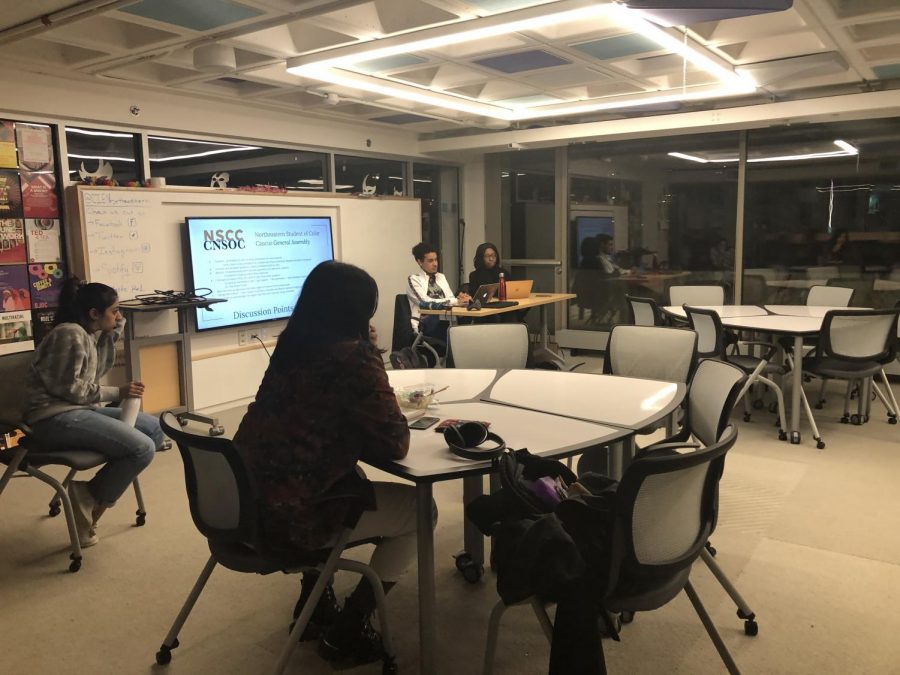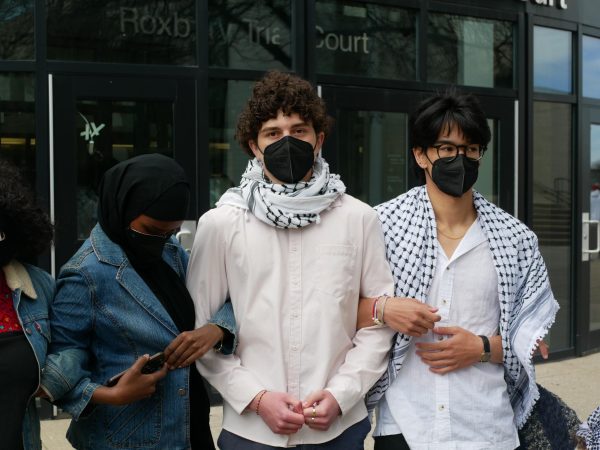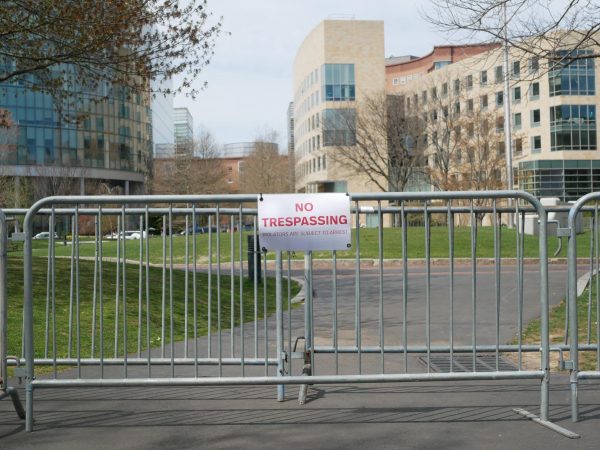NSCC discusses anti-racism education at Nov. town hall
The Town Hall was held in the Center for Intercultural Engagement.
December 1, 2019
The Northeastern Student of Color Caucus, or NSCC, held a town hall meeting Nov. 18 where members shared their experiences facing racism and discrimination from their classmates.
Some recalled ignorant comments made by other students during serious classroom discussions, including incidents of students “blatantly making fun of professors’ accents.”
“Our classrooms are [professors’] workplaces,” said James Lyons, the secretary-general of the NSCC.
The town hall opened a discussion on how to address classroom incidents and prevent their recurrence. One method currently in place is to file a grievance/reporting form. A program similar to the Office of Student Conduct and Conflict Resolution (OSCCR) was proposed, where students are held accountable for racist incidents and have a responsibility to prove they have learned from their actions.
Members also proposed methods for stopping prejudice in the classroom. NSCC members considered teaching a “standard of cultural competency” to students both at first-year orientation and throughout a student’s years at Northeastern to work toward eliminating racism in the classroom.
Lyons discussed his idea of teaching anti-racism in 1000-level courses and requiring capstone projects to include a diversity and inclusion component within the project.
Ultimately, the group concluded that people need to educate themselves on race issues. Members felt they had a burden to teach their classmates, but “that’s not my job,” said Jordan Clark, the NSCC secretary of records and alumni advisor.
Lyons cited the Center for Intercultural Engagement as a place for non-students of color to learn more about racial issues for themselves instead of asking students of color to be responsible for their education.
Clark said in addition to students taking responsibility for improving their behavior, the university needs to foster an environment where students feel comfortable educating themselves.


















